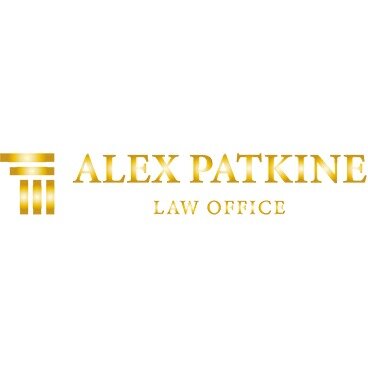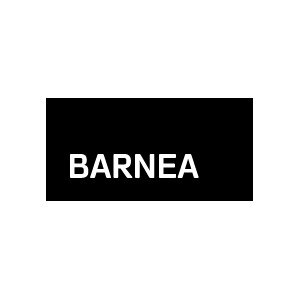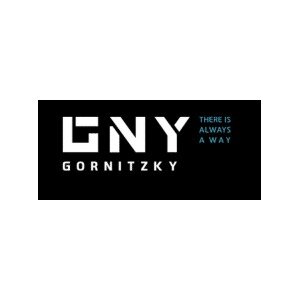Best Project Finance Lawyers in Tel Aviv
Share your needs with us, get contacted by law firms.
Free. Takes 2 min.
List of the best lawyers in Tel Aviv, Israel
About Project Finance Law in Tel Aviv, Israel
Project finance is a specialized field of law centered on the financing of long-term infrastructure, industrial, and public service projects. In Tel Aviv, Israel’s economic and business hub, project finance activity encompasses sectors such as energy, transportation, water, telecommunications, and public-private partnerships. The area often involves complex legal structures with multiple participants, including sponsors, lenders, public authorities, investors, and contractors. Given Israel's dynamic tech scene, evolving regulatory frameworks, and unique geopolitical context, project finance transactions in Tel Aviv present both significant opportunities and challenges that require expert legal guidance.
Why You May Need a Lawyer
A lawyer specializing in project finance can be crucial in a range of situations. Common scenarios include negotiating and drafting project agreements, advising on risk allocation, structuring finance deals, navigating regulatory approvals, securing permits, and dealing with disputes or defaults. Legal advice is often necessary when engaging with Israeli authorities, securing cross-border investments, or ensuring compliance with environmental and zoning regulations. Whether you are a project sponsor, investor, public body, financial institution, or contractor, consulting a project finance lawyer in Tel Aviv can help protect your interests, avoid costly mistakes, and facilitate the completion of complex projects.
Local Laws Overview
Project finance in Tel Aviv is governed by a combination of national Israeli laws, municipal regulations, and industry-specific statutes. Key legislation includes the Israeli Companies Law, Securities Law, Planning and Building Law, and various environmental laws. Public-private partnership (PPP) projects are shaped by government policy and tender rules, often requiring strict compliance with the Public Contracts Law and competitive bidding processes. Israeli law also recognizes security interests, such as pledges and mortgages, for securing project finance. International investors must often navigate foreign investment regulations, currency control laws, and the potential application of international conventions. Local legal counsel is essential for interpreting these legal frameworks and ensuring all aspects of a project are compliant.
Frequently Asked Questions
What types of projects are commonly financed through project finance structures in Tel Aviv?
Typically, infrastructure projects such as highways, light rail, renewable energy (like solar and wind farms), water desalination plants, and large real estate developments use project finance structures.
What is the role of the government in project finance in Israel?
The Israeli government often acts as a grantor or regulator in projects relating to public infrastructure, offering concessions, guarantees, or backing for strategic projects, particularly in the PPP model.
Is foreign investment allowed in Tel Aviv's project finance market?
Yes, foreign investors are active in Tel Aviv and throughout Israel's project finance market. Some restrictions apply, especially in sensitive industries, and may require regulatory approval.
What legal documentation is involved in project finance transactions?
Key documents include loan agreements, concession agreements, shareholder agreements, engineering-procurement-construction (EPC) contracts, operation and maintenance agreements, and various security documents.
Are there specific environmental regulations affecting project finance?
Yes, Israel has environmental regulations that may impact project feasibility, including requirements for environmental impact assessments, emissions controls, and sustainable development practices.
How long does it typically take to close a project finance deal in Tel Aviv?
The time frame varies based on project complexity but can range from several months to over a year, depending on due diligence, permitting, financing, and negotiations.
What are common risks associated with project finance in Israel?
Risks include regulatory changes, construction delays, cost overruns, currency fluctuations, political considerations, and force majeure events.
Can disputes arising from project finance agreements be resolved in Israeli courts?
Yes, disputes can be settled in Israeli courts or through arbitration if the contract specifies. Many agreements include arbitration clauses, sometimes under the rules of the Israeli Institute of Commercial Arbitration.
Do lenders have recourse to project assets in the event of default?
In most project finance structures, lenders have limited recourse and rely on the project's assets, cash flows, and contractual rights for security, typically via mortgages or pledges.
What role do local banks play in Tel Aviv’s project finance sector?
Local banks often participate as lenders or arrangers, providing financing alongside international banks and financial institutions. They bring expertise in local market conditions and regulatory requirements.
Additional Resources
For more information or assistance, consider contacting the following resources which are relevant to project finance in Tel Aviv:
- Israel Ministry of Finance - PPP Division
- Invest in Israel (part of the Ministry of Economy and Industry)
- Israel Securities Authority
- Israel Land Authority
- The Municipality of Tel Aviv-Yafo
- Association of Banks in Israel
- Leading Israeli law firms specializing in project finance
- Israel Bar Association
Next Steps
If you require legal assistance in project finance, consider the following steps:
- Identify the specific nature and stage of your project or legal issue
- Gather all relevant documentation such as contracts, permits, or correspondence
- Consult with a lawyer who specializes in project finance in Tel Aviv
- Prepare a list of questions and objectives for your legal consultation
- Clarify fees and service terms before engaging legal representation
- Stay informed about regulatory developments that may impact your project
Lawzana helps you find the best lawyers and law firms in Tel Aviv through a curated and pre-screened list of qualified legal professionals. Our platform offers rankings and detailed profiles of attorneys and law firms, allowing you to compare based on practice areas, including Project Finance, experience, and client feedback.
Each profile includes a description of the firm's areas of practice, client reviews, team members and partners, year of establishment, spoken languages, office locations, contact information, social media presence, and any published articles or resources. Most firms on our platform speak English and are experienced in both local and international legal matters.
Get a quote from top-rated law firms in Tel Aviv, Israel — quickly, securely, and without unnecessary hassle.
Disclaimer:
The information provided on this page is for general informational purposes only and does not constitute legal advice. While we strive to ensure the accuracy and relevance of the content, legal information may change over time, and interpretations of the law can vary. You should always consult with a qualified legal professional for advice specific to your situation.
We disclaim all liability for actions taken or not taken based on the content of this page. If you believe any information is incorrect or outdated, please contact us, and we will review and update it where appropriate.

















